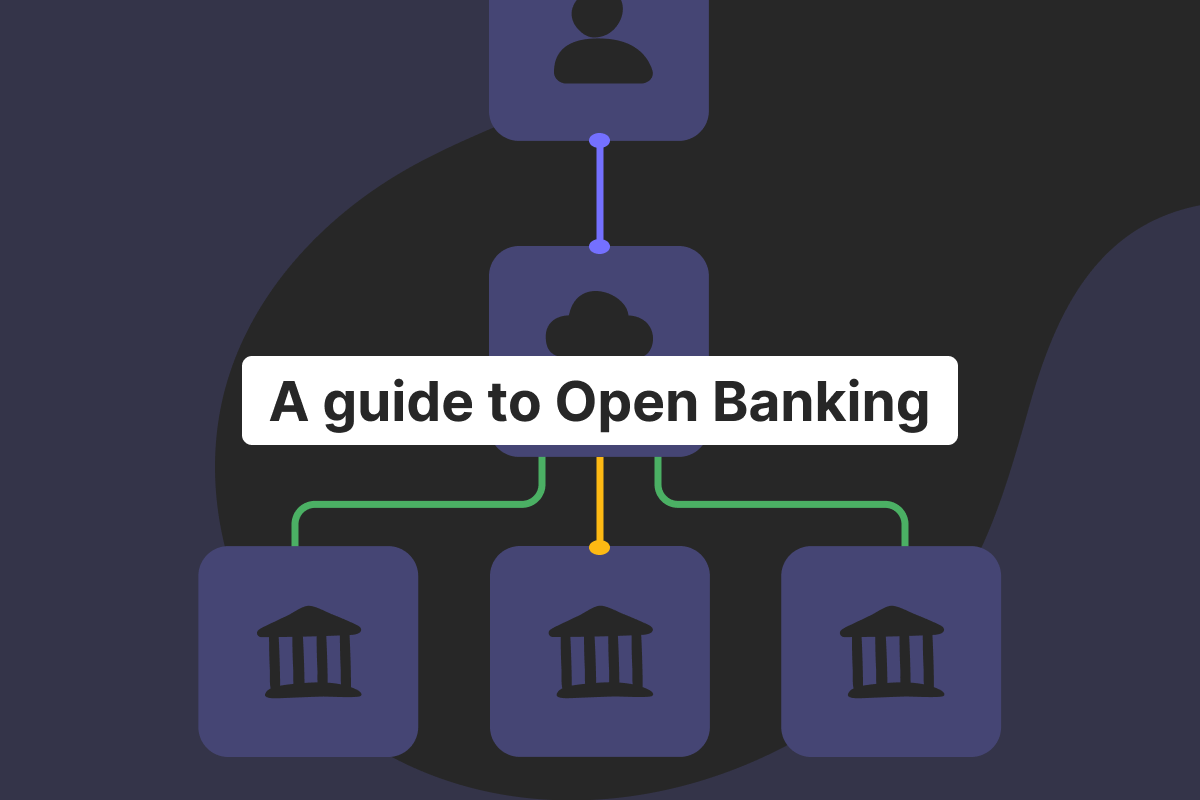Opening your first business bank account is a process that raises several questions. One of the key issues is how many bank accounts you should have.
There is no simple answer to this question that suits every company, so let’s look more closely at your bank account needs and how many bank accounts you generally need.
What are business bank accounts?
Business bank accounts are necessary for the organization and management of any company or sole trader. Without a bank account, you won’t be able to keep track of your transactions, but having the wrong type of account is going to make it more complicated in other ways.
Having the right accounts can help you achieve success by giving you a clear view of your business finances separately from your personal bank account. Your personal income and expenditure don’t play any part in this sort of account, so it’s easy to focus on the business aspect.
Having multiple bank accounts allows you to keep your money exactly where you want it to be.
Whether you need a savings account and a current account, accounts for each part of the operation, or different business accounts in various currencies, having multiple accounts keeps you in control of each aspect.
How many bank accounts should a business have overall? By looking at the various types of business accounts and how you could use them, you’ll get a clearer picture of how to proceed.
Open an account
in Genome online
Determining the right number of bank accounts for your business
Working out why you need one or more business accounts is the first task you should carry out before considering how many bank accounts you should have.
So, is having multiple bank accounts for you?
Assessing business size and complexity
The size and complexity of the company are the first factors to consider. A small business might only require a single account, while a larger operation with a complex business model is likely to need several business accounts to give a better degree of control over the finances.
Do you need multiple business checking accounts to deal with clients and suppliers in various countries? Or do you have to keep different parts of the business apart from each other in your accounting software?
Bigger companies typically need to partner with financial institutions with more accounts, but small companies may also have complex needs due to the way they do business and where they operate.
Balancing financial efficiency with management simplicity
Opening numerous accounts is easy, but you should be wary of opening multiple business accounts you don’t need. The key is to find the perfect balance so that the business owner is in control of the finances without making the management of these bank accounts too complicated.
As with your personal accounts, you need to feel confident that you understand what each account offers and how to use it. It is particularly important if you deal with multiple banks or several people need to use the account.
Benefits of having multiple business bank accounts
Opening additional bank accounts provides some potentially useful benefits you should know about.
Improved cash flow management
Rather than putting all your money into one business account and managing the cash flow, you can have a separate bank account for each function. It makes it easier to spot important transactions on your bank statements and stay on track for financial success.
With two bank accounts or three accounts, it’s going to be easier to track your business income even across multiple currencies and different countries. It also reduces the risk of your money getting caught up in time-consuming transactions across multiple banks and accounts.
Facilitating budgeting and expense tracking
When managing expenses and keeping an eye on profit accounts, multiple accounts can make life easier.
You might have general operating expenses coming out of one account while you allocate the budget for staff payroll and other costs from a different corporate bank account.
It means that you don’t need to mix personal and business finances when traveling, for example. All of the business expenses come out of this account rather than a personal account, which keeps things nice and simple with no risk of confusing the source of the funds.
Types of bank accounts a business might need
Before going ahead and opening a variety of separate accounts, take a moment to think about the different aspects of your business finances that you need to cover.
Operating account
It should be your main business bank account for managing day-to-day transactions and expenses.
As a type of business current account or checking account, you’ll be able to see here all your main business-related transactions, like the payments you receive and those you make to suppliers.
It is the type of account you might have opened in the past with traditional banks that can now be operated online. In fact, you might choose a different current account like this for each area of the business or currency you deal with.
Reserve or savings account
An additional savings account gives you a way of setting aside funds for a variety of reasons. High-yield savings accounts make your funds work harder for you while having this cash stored in a separate account gives you access to money for future investments and emerging growth opportunities.
You might also need your savings account for emergencies at some point, such as when you have to upgrade equipment urgently or deal with another type of unexpected cost.
The right savings accounts are perfect for earning interest on money that’s sitting in your account while you wait to see how to use it.
Payroll account
Every small business owner and large corporation has to take care of employee wages and benefits without any issue or delay. This is why one of your business bank accounts could be used.
If you use your main current account for this purpose, you might discover that mixing business deals with salaries and other expenses makes your financial management more complicated than you’d like it to be.
A dedicated business bank account solely for payroll will make this issue a lot easier to handle.
Tax account
Setting up an account to deal specifically with income tax, sales tax, payroll taxes and other types of tax obligations makes sense. Having a separate checking account for this reason gives you a simple way to keep on top of your tax liabilities and avoid year-end surprises.
You won’t need to rush around trying to obtain all the right figures for tax season since you’ll know that everything you need is a separate account.
How Genome can simplify multi-account management
When you’re looking for dedicated accounts for your business, Genome’s services provide everything you need for streamlined multi-account management.
Our multi-currency accounts allow you to deal with clients and suppliers using the most convenient currency. Inside Genome, you can have accounts in 11 different currencies: EUR, USD, GBP, PLN, CHF, JPY, CAD, CZK, HUF, SEK, and AUD – up to 5 accounts per currency.
You gain access to dedicated IBANs and can manage your funds securely, having different accounts for various expenses and purposes.
And, thanks to the shared business account feature, you can give your authorized employees safe access to your accounts. You can assign them different roles and responsibilities to share the workload. Keep each aspect of your business finances separate and easy to control.
Business wallet users can also access international transfers, allowing them to send and receive funds from over 40 countries in the currencies listed above. Just make sure that your company is eligible.
Additionally, all our clients can send and receive SEPA Instant Transfers, as well as utilize regular SEPA Credit Transfers.
Using Genome gives you fast and secure access to all the business accounts you need to look after your company’s finances via both the web version and the Genome app.
Get started with our online business wallet to carry out comprehensive financial management, where you will always know what is happening with your funds.
Open an account
in Genome online
The importance of multiple business bank accounts
Having two or more business bank accounts is a great option for ensuring effective financial management. This gives you the opportunity to have a dedicated bank account for each of the activities that matter most, from a savings account to a general business account and maybe another for paying employees.
Before opening multiple accounts, it is the right moment to consider how to use a thoughtful account structure. Opening the right kinds of accounts promotes business growth and stability by giving you access to all the relevant details and services, separate from your personal finances.
By using Genome’s technology-driven solutions, you get the kind of helping hand that assists businesses in optimizing their financial account architecture.
Choose the business checking accounts that you need to manage your business funds while making your financial operations smoother and with no risk of mixing funds with your personal finances.
FAQs
Why should a business have multiple bank accounts?
By having more than one account, businesses can manage their business operations more easily and better understand their financial health. It’s possible to open multiple accounts with the same bank, with each one covering a different aspect of the company’s needs.
What types of bank accounts does a business typically need?
The most common business bank accounts cover areas such as general operations, savings, payroll costs, and tax. Before opening a business bank account, it’s a good idea to take a moment to think about which of these accounts your company needs.
How do I determine the right number of bank accounts for my business?
Rather than setting a limit on your number of business bank accounts, you should think about the different reasons for having them. Each of your multiple business bank accounts should be used for a specific purpose, such as covering your tax obligations or paying the staff from a dedicated account.
Can too many accounts complicate financial management?
It’s fair to say that opening many bank accounts could complicate your finances. How many bank accounts do you need to run your finances smoothly? The answer to this question lets you understand whether you need one checking account or should open various bank accounts for different aspects of the business.






